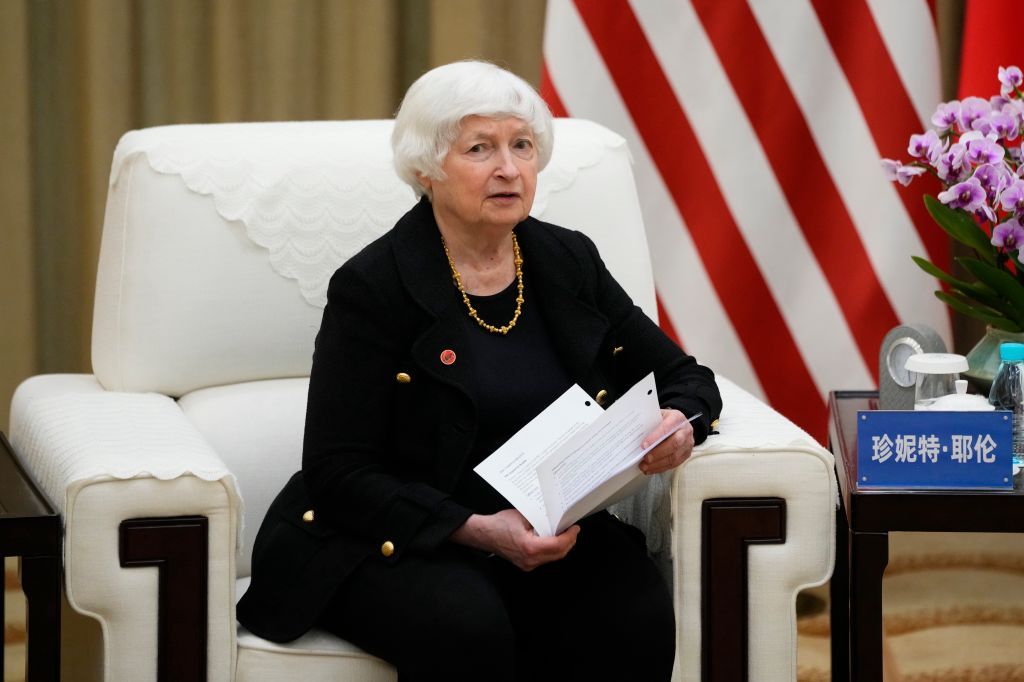The Group of Seven (G7) allies, including the U.S., are considering a proposal to use interest earnings from frozen Russian assets to support Ukraine. The allies froze around $300 billion in Russian assets at the start of the full-scale invasion in 2022. U.S. Treasury Secretary Janet Yellen mentioned in an interview with Reuters that the funds could be used to assist Ukraine without directly confiscating them. The frozen funds could be converted into financial aid for Kyiv, with interest earnings being used to back future loans. Yellen praised the EU’s plan to transfer sanctions-related profits earned at Euroclear to Ukraine, which could generate around $5 billion a year in interest.
The U.S.-backed plan to use interest from frozen Russian assets is gaining popularity among G7 allies, with the option to back future loans to Ukraine being debated ahead of a June leaders’ summit. The U.S. government recently passed the REPO Act, allowing for the seizure and transfer of frozen Russian assets held in the U.S. to Ukraine. President Joe Biden signed the REPO Act alongside a $95 billion foreign aid bill that included $61 billion for Kyiv. This legal basis for liquidating frozen Russian assets marks a significant step in supporting Ukraine in its conflict with Russia.
The EU’s plan to set aside sanctions-related profits earned at Euroclear and transfer them to Ukraine has been viewed as a welcome step by Yellen. Most of Euroclear’s Russian assets have been converted into cash, potentially generating substantial interest earnings that could be used to support Ukraine. Yellen highlighted that using the interest from frozen Russian assets to aid Ukraine is a method that could be broadly supported by countries that are concerned about asset seizure. This approach provides a way to help Kyiv without directly confiscating the frozen funds, allowing for financial assistance to be provided through interest earnings and possible loans.
The U.S. proposal to use interest from frozen Russian assets to back future loans to Ukraine is part of the ongoing discussions among G7 finance ministers. Yellen confirmed that the plan will be considered as one of the options to support Ukraine ahead of the leaders’ summit in June. The U.S. government’s passage of the REPO Act signifies a significant shift towards utilizing frozen Russian assets to provide financial aid to Ukraine. The act allows for the legal mechanism to seize and transfer these assets to support Kyiv in its conflict with Russia, demonstrating a commitment to bolstering Ukraine’s resilience in the face of the ongoing conflict.
Overall, the initiative to use interest earnings from frozen Russian assets to assist Ukraine represents a strategic approach by G7 allies to support the country in the midst of the conflict with Russia. The proposed plan to convert the frozen funds into financial assistance for Kyiv through interest earnings and potential loans is gaining traction among G7 nations. This innovative strategy provides a way to leverage the seized assets for the benefit of Ukraine without directly confiscating them, demonstrating a collective effort to stand in solidarity with Ukraine and address the challenges posed by the ongoing conflict. By utilizing the interest from frozen Russian assets, G7 allies are aiming to provide tangible support to Ukraine and strengthen its resilience in the face of adversities.















